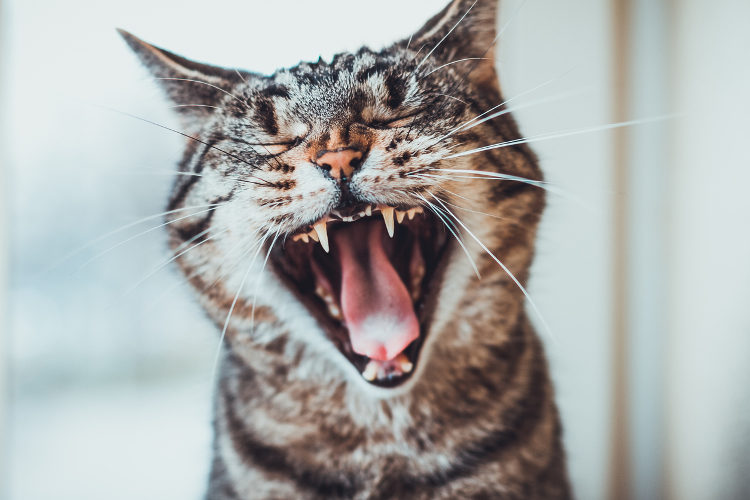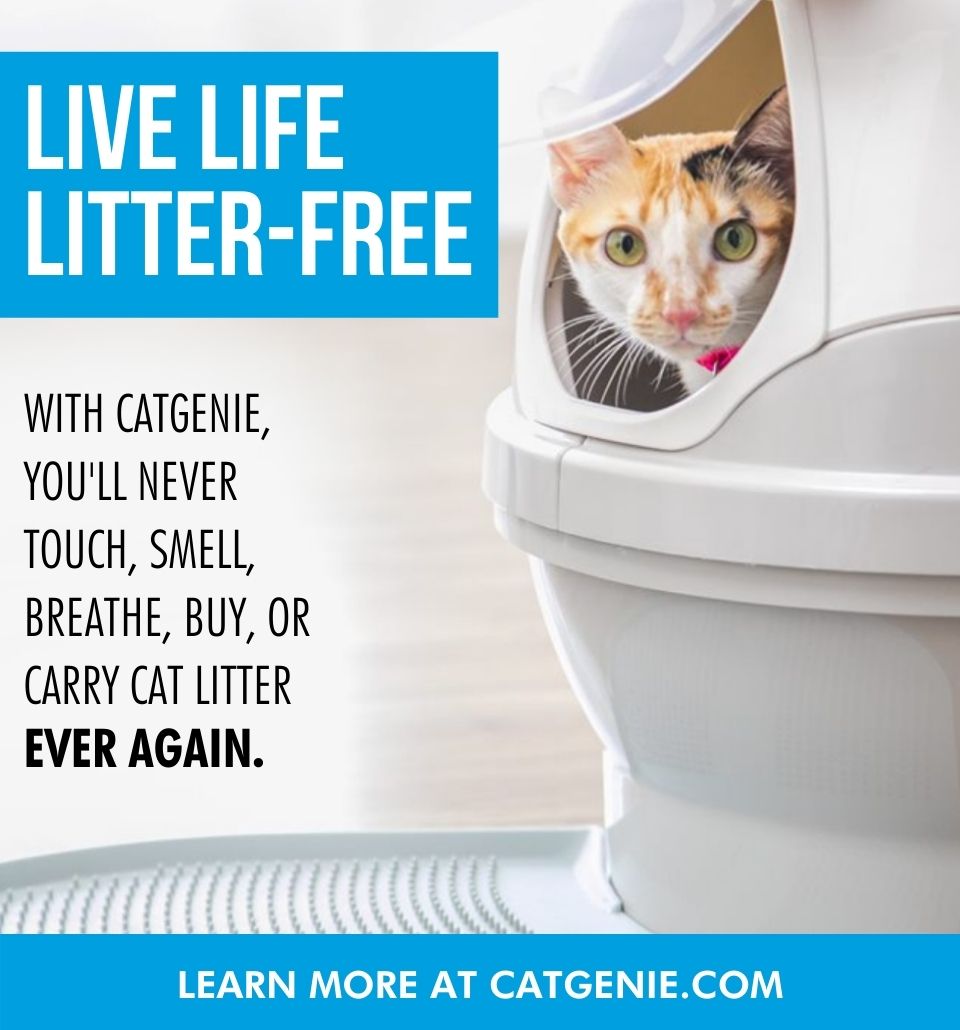Humans have 32 teeth and cats have 30. Every one of them should be brushed regularly – just like ours. Uh, I hear you thinking. Easier said than done! Right? I’ll admit it sounds tricky. However, learning to brush your cat’s teeth at home is necessary to keep your furry friends healthy. Sound ridiculous? It’s actually ridiculously serious since not caring for your cat’s teeth can lead to tooth loss in older cats or even more serious health problems. Read on for our dental hygiene guide!
CATS GET ORAL DISEASES TOO
According to the American Veterinary Dental Society, “oral disease is the most frequently diagnosed health problem for pets,” with 70% of cats showing signs of oral disease by the age of 3. Cats can get all the same horrid dental diseases that humans do, from periodontal disease to gingivitis to mouth ulcers and more.
If these diseases are allowed to set in and persist, your cat can experience pain while eating, get abscesses, and even lose teeth. Also, just like in people, these diseases can lead to other serious health problems, affecting the heart or kidneys or other organs and causing chronic illnesses. Don’t just take it from me – check out these words from veterinarian Brook Niemiec with the National Pet Dental Health Campaign:
“Dental disease is a HUGE deal. … Periodontal inflammation and infection have been linked to numerous problems including heart attacks, strokes, kidney disease, emphysema, liver disease, osteoporosis, pregnancy problems and diabetes. Therefore, oral infectious diseases are known as ‘the silent killer.’”
By becoming active in your cat’s oral health, you can also keep a better eye on their overall health. Make sure their gums are a healthy pink, and not red, irritated, or swollen. Teeth should be white, and a little yellowness is okay; very yellow teeth, brown teeth, or crusty teeth are concerning. Your cat’s breath should not smell bad – normal kitty breath is okay, but genuinely bad breath could indicate a problem. You’ll also want to watch out for excessive drooling, sores or lesions, bleeding gums – any of these should be checked out by a veterinarian.
HOW TO BRUSH YOUR CAT’S TEETH
STEP ONE: Have the correct tools. In order to brush your cat’s teeth, you need a soft toothbrush made for cats or perhaps a pediatric finger brush. You’ll also need a toothpaste formulated especially for cats; both of these items are easy to find online or at some major retailers.
NEVER use toothpaste meant for humans, as it can make your cat seriously ill.
STEP TWO: Start accustoming your cat to the toothpaste, toothbrush, and the fact you’ll be regularly sticking your fingers in her mouth. It’s best to do this with kittens, but even adults can be trained; doing this process daily for a month or two will make the training go more smoothly.
You can begin by putting a little bit of the toothpaste on your finger and encouraging her to lick it off – these products come in feline-favored flavors like tuna or poultry, so you’re getting an assist from the manufacturer.
After a few days, move on to putting the toothpaste on the toothbrush or finger brush.
From there, you can introduce the toothbrush to your cat’s mouth and try to clean 1 or 2 teeth at first. After doing this successfully, give your furry friend a treat and plenty of praise. As the days go by, go for more and more teeth until you’re successfully cleaning all your kitty’s chompers. Here’s how:
STEP THREE: Brush your cat’s teeth. You should move the toothbrush in circular motions on each tooth, and be sure to massage their gums with the brush as well. It’s easiest to do this with the cat sitting in your lap, so you can gently open her mouth from above. Remember: patience and persistence are key, so don’t get frustrated.
STEP FOUR: Regular dental hygiene is necessary; you won’t keep your kitty’s teeth healthy with random and occasional brushing. Some professionals recommend you brush their teeth daily, but once or twice a week is also an acceptable goal.
STEP FIVE: Make sure your vet checks your cat’s teeth annually. It’ll help with the complete picture of your pet’s health, and, if necessary, your vet’s office can do a professional clean on their teeth.
HELP KEEP CAT’S TEETH CLEAN
There are a few other methods to help keep your cat’s teeth clean. If your feline companion needs more help with his dental hygiene, you can give any of the following a try:
Special Food: You can find dental-formula dry food on the market that incorporates large pieces of kibble – the idea is to get your cats to chew more, and allow the food to help scrape their teeth.
Dental Treats: Similarly to the dry food, some treats are abrasive to contribute to teeth-scraping; others may contain special enzymes that discourage the build-up of plaque.
Dental Sprays: These products, sprayed into your cat’s mouth, are specially formulated to control and discourage the accumulation of plaque and tartar.
Dental Additive: Your vet may be able to provide you with a dental additive meant for your cat’s water, which can help dissolve plaque.
Dental Hygiene Toys: These are a variety of cat toys out there intended to help you improve your cat’s dental health: some are toys covered in a mesh that rubs your cat’s teeth when they bite and play. Others are chew toys that either stimulate their gums or scrape across their teeth.
With these tips and guide, you’ll find yourself well-armed to tackle your cat’s dental hygiene and keep her happy and healthy. Now hit the comments with your own tips from the cat teeth-brushing arena!
Further Reading
American Veterinary Dental College’s “Home Care for Cats”
WebMD’s Healthy Cats – “10 Steps to Cat Dental Health”







Well that was illuminating – I didn’t know half of that. I wish I’d tried the toothpaste thing when mine was a kitten. As it stands, I think if I tried to rub toothpaste into her mouth I’d lose a finger. Maybe with that tuna toothpaste it’d go easier. Let’s see!
Take it slow! Let us know how you make out 🙂
Oh my God, thank you so much for suggesting that we can simply use special sprays to stop the spread of plague inside our cat’s mouth. This reminds me of my niece who just adopted a Siamese cat last week. I’ll ask her to look further into this information so her cat will always have good oral hygiene later.